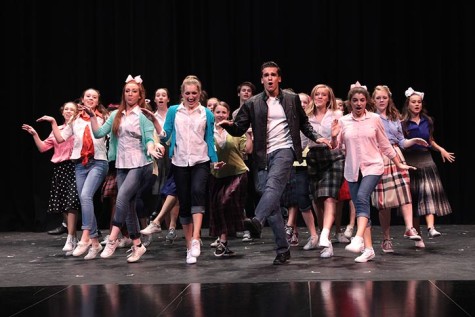The American Library Association Celebrates Banned Books Week
To Kill a Mockingbird. Of Mice and Men. The Diary of Anne Frank. There is one thing these classic novels have in common. All of them are on the Banned Books List, a list of literary works that have all been challenged.
Every year, the American Library Association celebrates Banned Books Week, which recognizes and appreciates books on the list. This year, Banned Books Week was Oct 27 through Nov 3.
Everything began with a display of banned books wrapped in caution tape at the 1982 American Bookseller Association’s Annual Conference.
“So many people were fascinated by the display and the reasons why books were banned that sponsors of Banned Books Week decided to make it a yearly celebration,” said Nanette Perez, program officer at the ALA Office for Intellectual Freedom.
Perez said books can be put on the list for several reasons, such as being “anti-family” or expressing a religious or political viewpoint. Despite these controversies, Perez said she doesn’t think any of the books should be on the list.
“Our First Amendment Right allows us to read whatever we want to read.That right should never be taken away from us,” she said.
Perez additionally said she thinks this censorship on books will have a negative effect on future generations of readers.
“People read books to gain insight on themselves and others. If a book is banned, it takes away the right of individuals to learn more about themselves,” she said.
Lee Mitchell, head librarian, is an advocate of making sure students are allowed to read famous literary works, even if they have been previously challenged.
“There are some really great books on it that you would want people to have access to,” she said.
Luckily, Rockwood does not allow “banning books” if a parent protests, but Mitchell said that before a book is put on the shelf, several things are taken into account. Good reviews, community approval, and the question of whether kids will want to read it are all important when selecting books for the district.
“I think education is what keeps us free,” Mitchell said, “As long as librarians and the public fight to not have things banned, we’re in good shape.”
Mitchell also puts up a display of banned books in the library so students such as Jenica Bunderson, junior, are aware of the issue.
“I think every piece of literature has something to offer,” Bunderson said.
When books are challenged, Bunderson said she often thinks about what specific aspect of the book the world wants to keep from her.
“I think that to prevent the world from having that knowledge and that point of view the author has to share is a crime,” she said.
If the Banned Books list continues to grow, Bunderson thinks there will be consequences.
“I think we would have a generation of children who aren’t as cultured and informed about general issues,” she said.
Your donation will support the student journalists of Marquette High School. Your contribution will allow us to purchase equipment and cover our annual website hosting costs. You may become a PATRON by making a donation at one of these levels: White/$30, Green/$50, Blue/$100. Patron names will be published in the print newsmagazine, on the website and once per quarter on our social media accounts.






